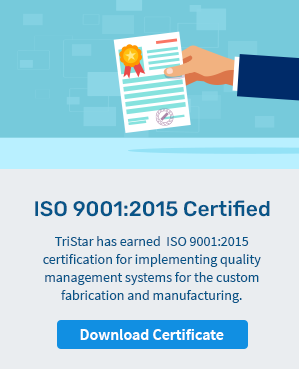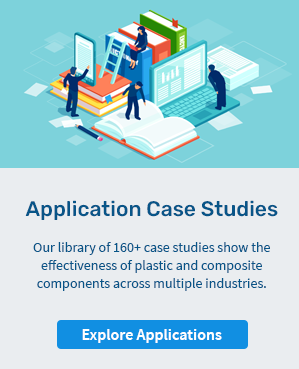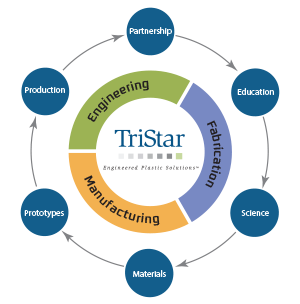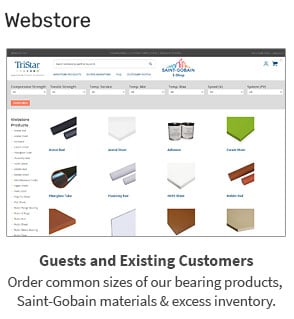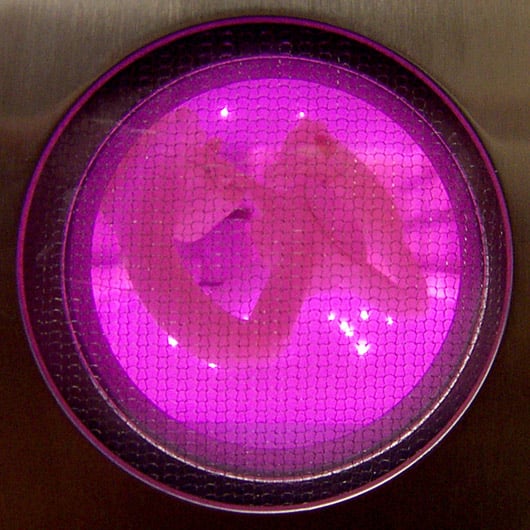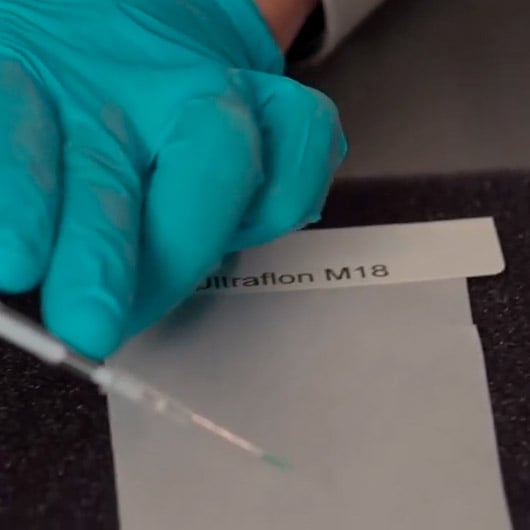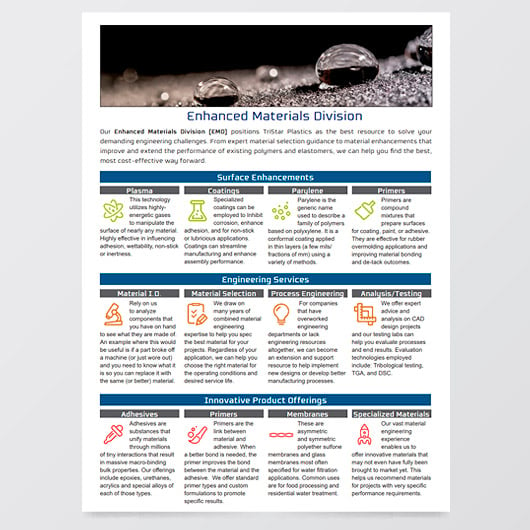Enhanced Materials
Plasma Treatment | Surface Modification | Membranes
Our Enhanced Materials Division (EMD) positions TriStar Plastics as the leading resource to solve your demanding engineering material challenges.
From cutting-edge enhancements that improve and extend the performance of polymers and elastomers to custom specialized membranes, we can help you find the best, most cost-effective way forward.
We offer...
- Plasma Treatments
- Specialized Membranes
- Contract Manufacturing
We also offer close-tolerance cutting, customized stocking programs and J-I-T delivery.
Do you have a question for our polymer scientist?
Enhanced Materials Division
Learn about the advanced products and services available from EMD.

